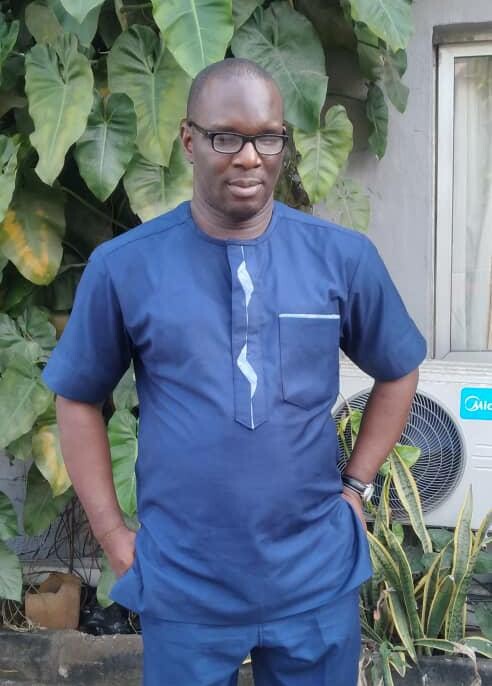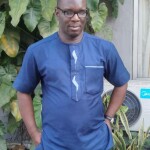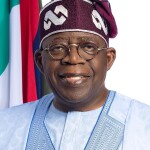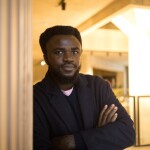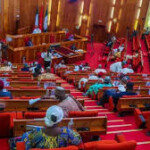Lukman Salami, a lawyer and chairman of the Nigeria Association of the Blind, Lagos chapter, speaks to Equality Reporters on roles government and NGOs play in failure and poor implementation of policies affecting disabilities communities.
Nigerian governments quickly domesticate charters, sign laws, and formulate policies upholding PWD’s rights. But implementation, including funding, becomes a problem. Many call this irresponsibility. What will you call it?
I will put the quickness to sign those international treaties as pretence on the part of the government. No amount of signatories can make international treaties operational in Nigeria except they are domesticated through the National Assembly. Then from there it comes to the executive level. But are we even saying the provisions of those treaties are not in our own domestic laws? That may not be so. If those laws are implemented, Nigerian won’t need to be signing international treaties.
Lagos has come up with a policy and a piece of legislation that are PWD-oriented: The Lagos Special People Law. What’ do you think about it?
Before a law is proposed, we consider what we call mischief rule. It means the law seeks to correct certain things that are wrong. So before we can assess if the LSSPL is effective in Lagos, we go back to the challenges it seeks to correct—the rudiments of the problem before the law came. I can say I have not seen the positive impact of the law on persons with disabilities in Lagos. Whatever we are seeing today is not as a result of the law per se. It’s based on the orientation of those in government. When Ambode was governor, he had friends with disabilities and he interacted with them before he came into office. That affected his disposition to disabilities. Sanwo-Olu also met the community, and confessed he knew next to nothing about disabilities. So he relies on a third party to lead him in doing anything about disabilities. That depends on whether the third party is giving him the actual information. That doesn’t mean he’s not doing his best. The problem of employment (based on who you know) and access to education that came before the law are still there. PWDs are suffering from discrimination. No support systems in hospitals, public infrastructure, and even at Alausa.
Most of the four million NGOs around the world spring up following government irresponsibility. They seem to be taking over—or filling in—government responsibilities nowadays. Why do they find that any easier or better than policy advocacy and citizen empowerment?
It depends on how you look at it. I don’t see it as taking over, ordinarily. I am not in support of the NGOs, though. LASODA was giving them grants recently, and I was never in support of that. Money should be invested in the PWD communities the office serves first. When you are done with them, you may now reach out to outsiders like NGOs to give them funds. NGOs are supposed to complement government efforts.
If NGOs focus advocacy and empowerment, won’t they be doing better holding government accountable when it comes to policy implementation?
All of them are just looking for government patronage. They can’t report anything against the government. or else they won’t get funding. There is so much you can hold them accountable for.The law says all public building must be PWD-accessible. If you go to them and ask for the building code, you won’t get anything. How will buildings become accessible then? This inclusive education started when Tinubu was there. Nothing has changed. They just brought the pupils together in the same school compound. A special teacher cannot teach all children with disabilities. But go to the schools. You see a teacher trained for blind students teaching children with intellectual disabilities.
What is your view about LASODA’s management of disabilities in Lagos?
LASODA determines what the funds government put aside for PWDs will be spent on. I am talking from a privileged position now. They recently gave me, as the chairman of the National Association of the Blind, Lagos chapter, 40 white canes, five braille embossers, and one desktop, and two laptops. I have 500 members in Lagos. Had they consulted me before they determined and spent millions of naira buying all these things, I would have preferred 1000 white canes alone. The laptop and braille embossers, costing millions, are still there. But the white canes are almost exhausted about a month after presentation. As an insider, I’m telling you the governor is doing his best. But when we write to complain things are not done properly, he still directs us to LASODA, the same office implementing the policy the wrong way. You can see there is no good feedback mechanism. No independent means of verifying complaints.
But it's supposed to manage disability affairs?
Let me tell you this. There's something LASODA is getting wrong: it's not its duty to take over government's responsibilities to PWDs in Lagos. Or to provide education or legal services. Its only duty is to ensure all MDAs make provisions for disability issues. Just like a regulatory body providing manuals, prospectus, modules, and others to help the MDAs in their programmes for PWDs.. But LASODA is busy organising birthday parties and all that. And that was why the ministry of women affairs organized empowerment training at the Agege centre last year--six weeks for regular women. For the same training, women with disabilities had three weeks. Who needed more time? And a single teacher trained all of them with different disabilities in each of the sessions. Because LASODA failed to provide recommendations and training modules on how to train PWDs.
How much has that affected Lagos' inclusive education ?
We have over 1500 primary schools in the state. And the government highlighted 32 which are not residential for inclusive units. In the whole of Ikorodu, we may not have more than two or three. So wherever you live, you have to wake up very early, and drive down --- travel down ---a distance to take your child with a disability to school. You either wait there or come back after closing. Even if you are rich, can you sustain that? Yet government is spending money on inclusion education. I believe most of it end up in private pockets.

